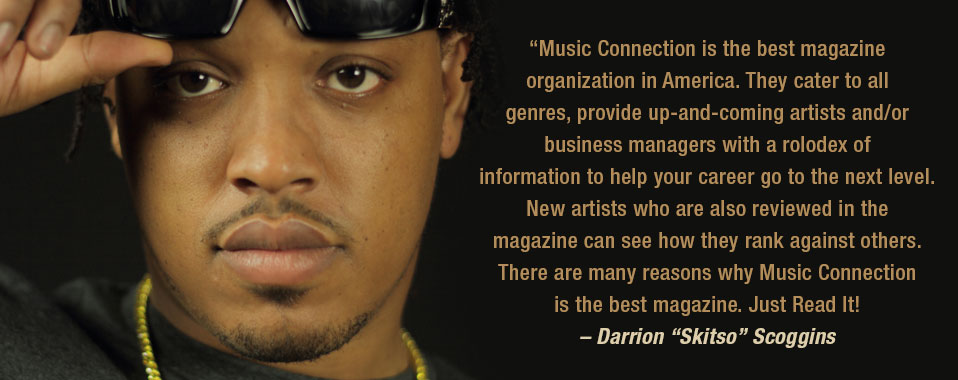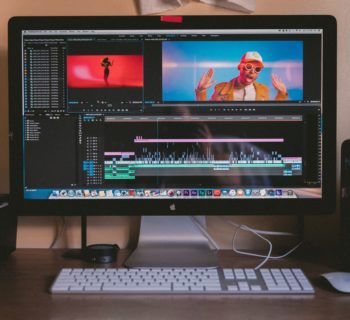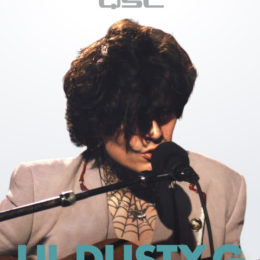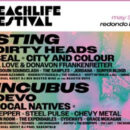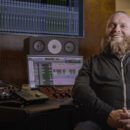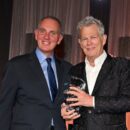Music Connection: What was the highlight of the Pensado Awards?
Justin Meldel-Johnsen: Bruce Swedien and his award, and Quincy [Jones] and him speaking together. It makes you feel like you’re witnessing the pinnacle of music recording all encapsulated in a small moment. And I never thought I would even meet those people much less see them speak in such a candid way about their career and their legacy. So it’s huge. These are the people I could only aspire to be in the same orbit. And I’m not in their orbit. They’re the true geniuses of real music-making. I’m not just saying this to sound falsely modest—I’m serious. Those are the real motherfuckers, and for people like me to be in their presence, is crazy.
MC: Can you expand on the Pensado Awards bringing together amateurs and pros of the industry?
M-J: The egalitarian aspect of it, the unified, level playing field aspect of it—it’s huge. That’s the thing that I was trying to speak on tonight-- and may not have done it very eloquently—but for me, Pensado’s Place is the great leveler and it’s also bringing to light the thing in the music business that is not quite as present in the other arts. Which is the, “Let’s look after each other, brother,” you know, “we’re all kinda in the same boat together,” sort of thing. Whatever the opposite of elitism is, is this.
That’s the thing about Pensado’s Place that drew me to it, and when they asked me to help out tonight, how could I say no? Because it represents the thing that I’m always trying to illustrate in my work—which is that there’s very little separation between me and you as we’re in this game, especially now that the music business has gone through so much downturn, drama and change. That brings into play that we don’t really have any choice but to lift each other up. And these guys are putting a big magnifying glass on that, so it’s cool, it’s nice.
MC: It brings the behind-the-scenes guys to the forefront. Without you there is no music—it’s symbiotic.
M-J: It’s very symbiotic, yeah. They tie it all together and they remove the elitism and the preciousness from it and the sort of pomp and circumstance is just gone. It’s more about men and women, all behind the scenes helping each other out, how it all worked and putting a big spotlight on it. It’s sweet; it’s really cool.
MC: How would have Pensado’s Place affected your career when you were getting started?
M-J: It would have been the missing link that would have taken me otherwise years to learn in the studio. When you watch episodes and you hear these interviews, here’s what’s different about it—print interviews obviously reveal a certain amount. But when you have this sort of candid discourse, when these guys who are in your field are sort of speaking to you in this really relaxed way, it’s disarming. It takes away the pretense. It’s more, “I’m going to give you the straightest answer I can possibly give you because you’re actually in my shoes, too.” So there’s no bullshit. It’s very like, I’m not trying to big up myself or do anything to make a better presentation of myself. We’re just having a conversation. So as someone coming up, to have had that access would have taken so much mystery out of this game for me. It took me years to actually figure out what the role of a producer even was. It seemed like some ivory tower, sort of like ephemeral unknown. Something you can never know, like the wizard behind the curtain. This is like the great leveler. It would have been huge for me! It would’ve taken years off of my trajectory had I had this thing. I’m really envious of young producer, engineer, music creator-mixer-types who have access to this kind of wisdom.
MC: What advice can you offer to aspiring producers?
M-J: I think that not chasing trends is a really big one. I know that sounds like a bit of a cliché—everybody says “don’t chase trends”—but the fact of the matter is it does a couple of things. If you’re chasing something that you heard that then comes out a year from now, or nine months from now, it’s going to already sound dated. Likewise, you date yourself if you’re just known for doing a very specific, niche trendy sort of sound or approach. I’m not saying being a complete chameleon—that’s kind of what I do, maybe to my detriment sometimes. Honestly, being a super explorer all the time sort of makes people scratch their heads a little bit and be like, “Well, what are you?”
So what I’m saying is somewhere in the middle. Less trendy, but not totally schizophrenic. Avoiding trends is really important. I think finding your own sound is really the key. Those are big words, because it’s easy for me to say, “Go forth, find your own sound,” but that’s a tall order. Finding your own sound—what does that even mean? But somehow, you have to. That has to be the goal. That always has to be the goal, because you are the one pushing music forward.
MC: It’d be cool to pull from past sounds—like Disco—and bring it back and make it new again.
M-J: You nailed it. That is so very true. There’s nothing wrong with mining the past. There’s value in that. Especially when people these days have such a wealth of information at their fingertips. Having the bibliography behind you of all this cool stuff that happened in music is dope. It’s incredible. Again, I didn’t have a lot of that coming up—I didn’t have the access. I’m over 40 now, I didn’t coming up that way.
So for kids to actually have that stuff at their fingertips, I just encourage them to use it and to export some of that, like, “Well what made a great disco record?” What can we parlay from that into the present without being retro, maybe, or trendy? We don’t have to make the Daft Punk record all over again, but they did something that was sick. They got the players that were part of the scene in the day to play on their record. Why not? Stuff like that—it’s novel. Think of ways to push things forward.

